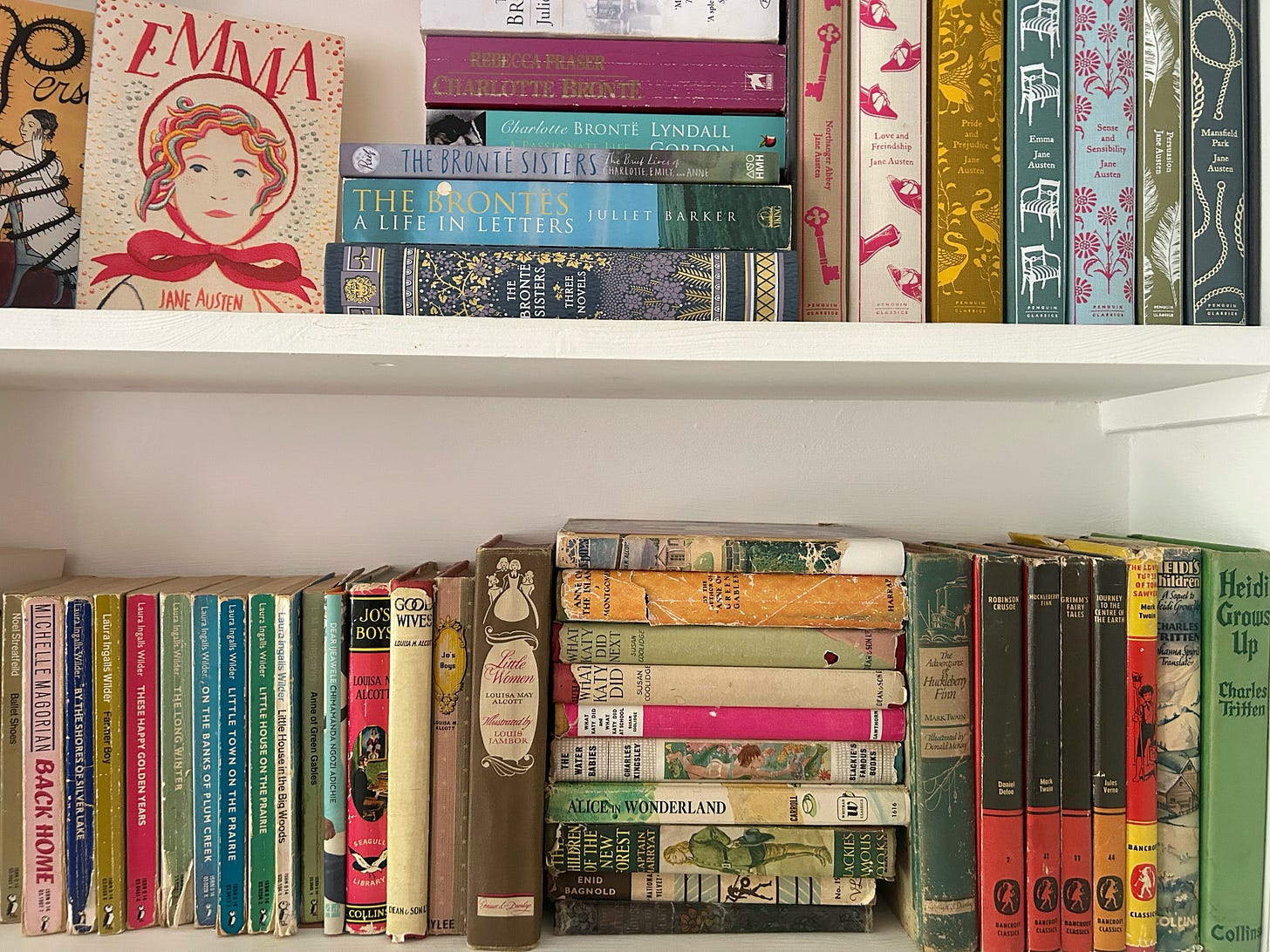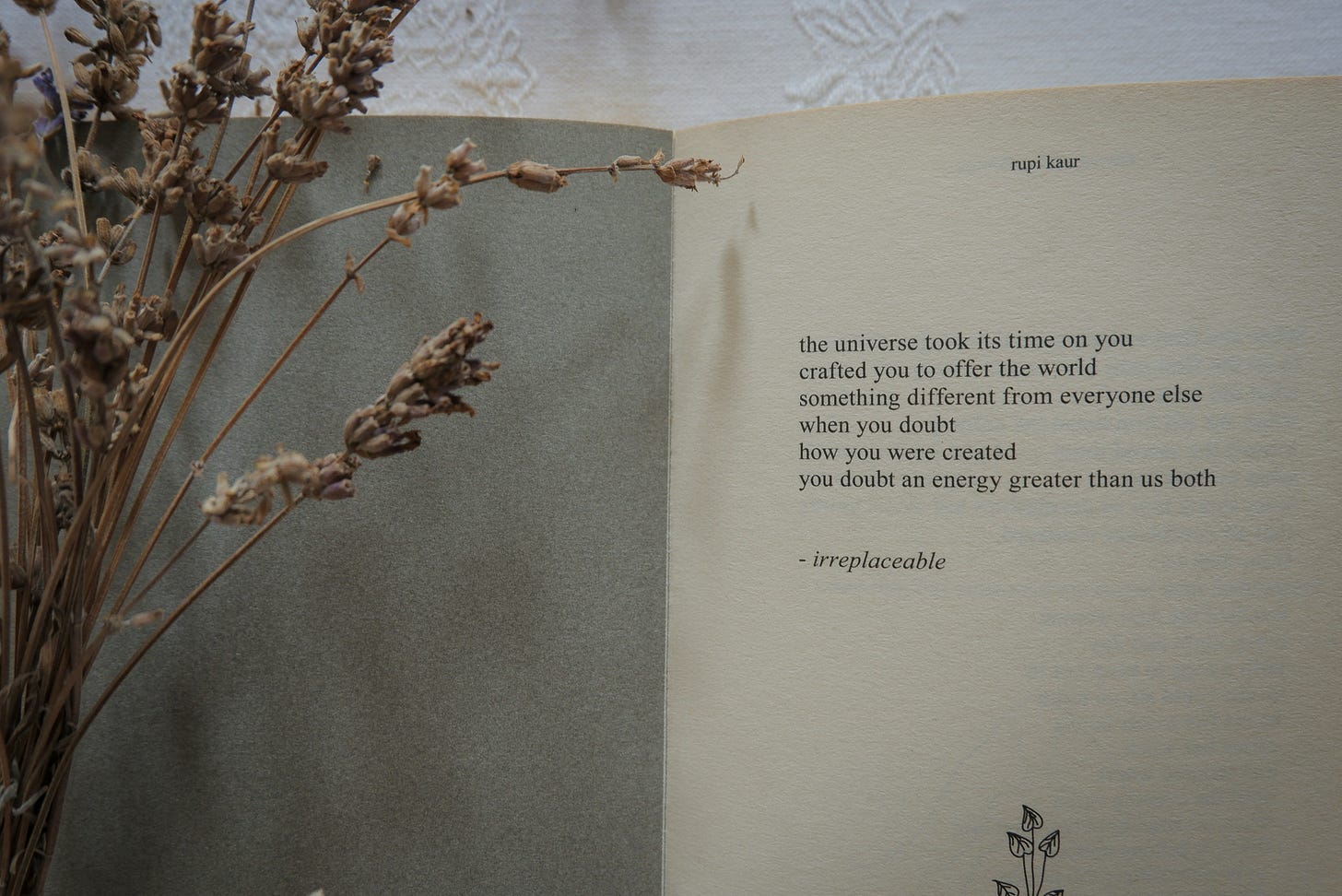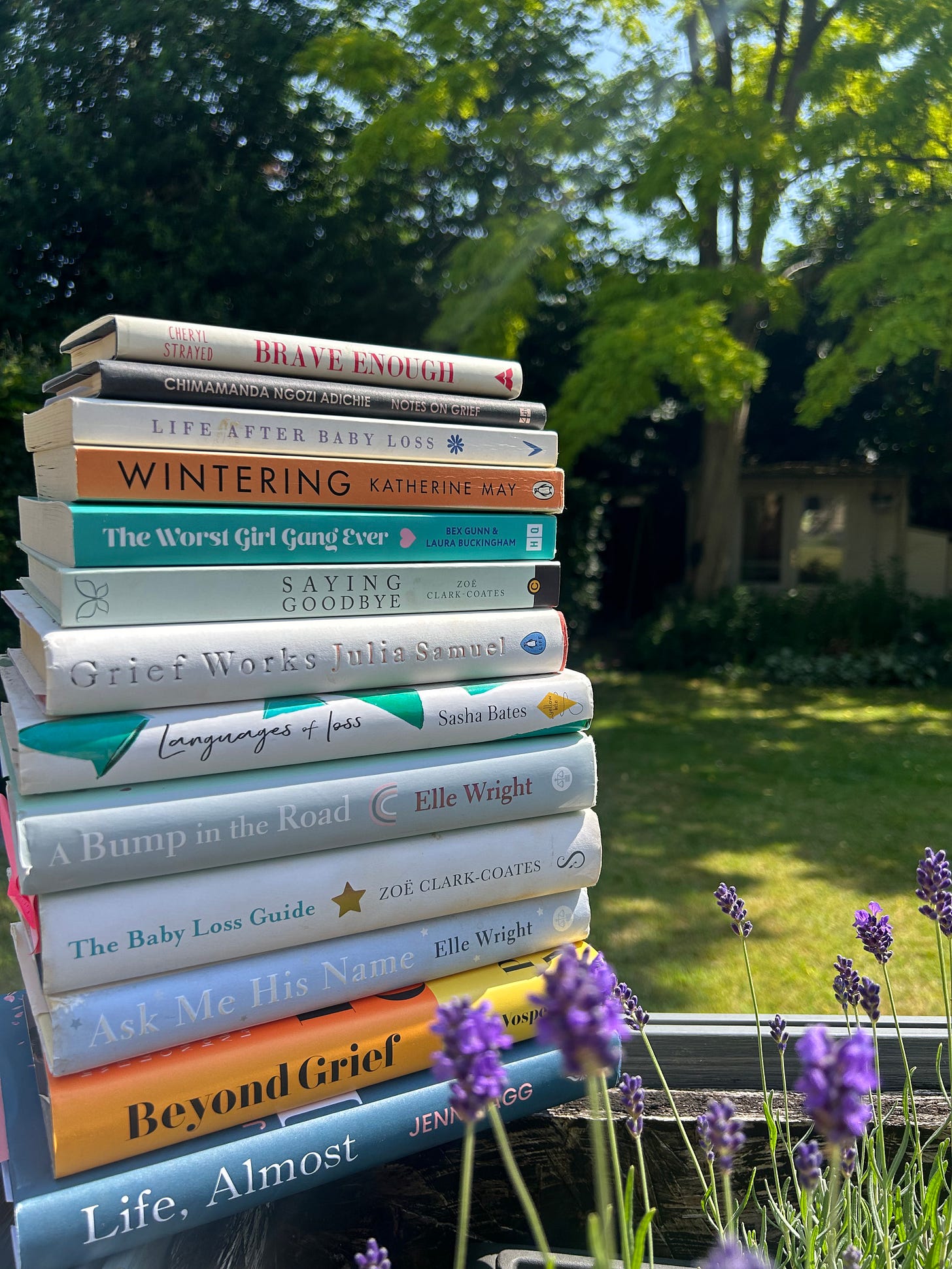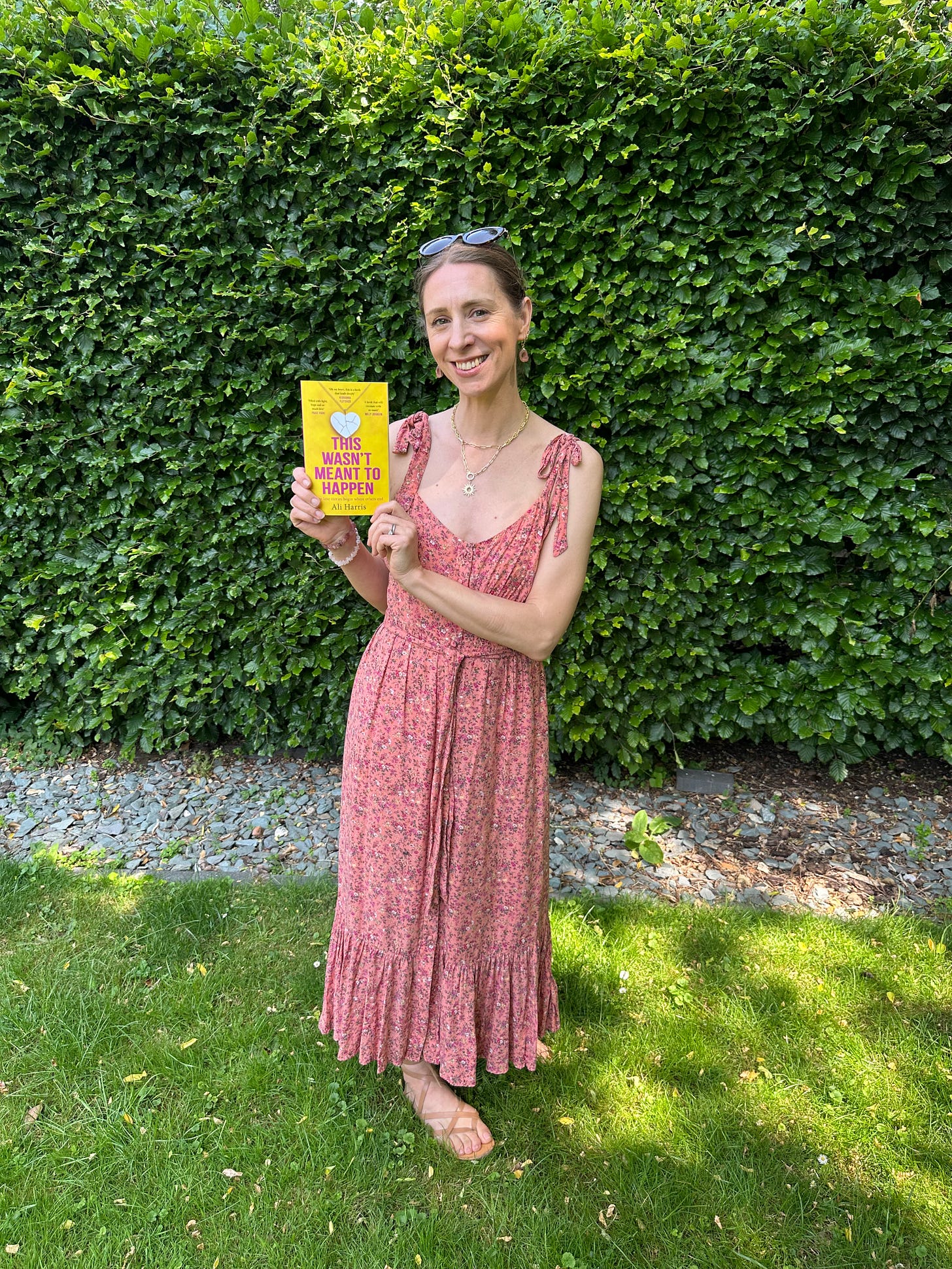There’s a reason we turn to books in times of crisis. When the world feels unstable - as it undoubtedly does right now, when life feels fragile, when we are broken, books can ground us. They can offer us a place to land. To mend. They tell stories when we have no words of our own. They reflect and articulate our pain with tenderness, thoughtfulness, intelligence, care. They give us company when we feel alone, voices to listen to, hope to hold on to.
In moments when everything else feels uncertain, they become a kind of scaffolding. A way back to ourselves.
Books fill the broken gaps with gold.
The loss of reading
After Poppy died, the biggest shock - aside from her dying and the grief itself - was that I couldn’t read.
Like most writers, I’ve always been a bookworm. It’s where I’ve found consistent joy, company and comfort ever since I was a child. Not only in happy moments, but through difficult times too: being bullied at secondary school, my parents’ divorce, my mother’s breakdown, my own heartbreak. I’ve rarely been without one since I learned to read. But in those early days when Poppy died, my brain was swollen with the dark fog of loss. Grief took over everything. I couldn’t focus. I couldn’t absorb anything. Every book, every TV show, every attempt at distraction became another mirror of my pain. My loss lingered behind my eyes. I couldn’t see anything else.

Finding comfort in the familiar
Eventually, in the middle of another long, sleepless night, I reached for a book that had comforted me as a child. I couldn’t consume anything new, but I could return to stories I knew by heart - be comforted by old friends who had been there through difficult times in the past, friends I knew intimately, trusted implicitly, and who knew me.
I reread Anne of Green Gables. Then I moved on to The Little House on the Prairie series, Goodnight Mr Tom, Back Home, The Secret Garden, Little Women.
Stories of courage and resilience in the face of adversity.
Stories with strong, familiar characters I loved like old friends.
Stories where I knew they would survive.
As the months passed, I began searching for books that spoke more directly to what I was going through - books written by people who had experienced deep grief and had survived it, too. I needed real-life examples now.
The first one that found me was via an Instagram post by someone I was following. It was Tiny Beautiful Things by Cheryl Strayed. I’d never heard of it, but I felt compelled to buy it immediately. I have never been more grateful for a book recommendation.
It’s not a book about baby loss. It’s not even really a book about grief. It’s a collection of colloquial advice columns from her Dear Sugar days full of wisdom, honesty, compassion, and lived experience, written like a friend is speaking directly to you. I felt like Cheryl was talking directly to me.
“Nobody will protect you from your suffering. You can't cry it away or eat it away or starve it away or walk it away or punch it away or even therapy it away. It's just there, and you have to survive it. You have to endure it. You have to live through it and love it and move on and be better for it and run as far as you can in the direction of your best and happiest dreams across the bridge that was built by your own desire to heal.”
— Cheryl Strayed, Tiny Beautiful Things
That book has been a permanent fixture on my bedside table for the past ten years. It’s also my most gifted book. I’ve bought countless copies over the years and given it to friends, family members, and acquaintances going through a terribly difficult time. I’ve even sent it to strangers - people who have reached out and said "me too" after hearing about Poppy. Most recently, I gave one to my neighbour who had lost her friend to cancer.
It’s the only thing I ever feel certain about doing: sending a copy of Tiny Beautiful Things. And I hope that through that simple act, it will keep moving - either passed on to or bought for the next person who needs it.
Opening the non-fiction floodgates
“Grief is a cruel kind of education. You learn how ungentle mourning can be, how full of anger. You learn how much grief is about language, the failure of language and the grasping for language.” — Chimamanda Ngozi Adichie, Notes on Grief
Over time, I began to collect books about grief and loss - specifically baby loss - like they were pieces of timber with which to make a raft; the pages within them lifejackets to keep me afloat. Each one gave me something I needed at a different stage of my journey.
These books became my grief companions. They are written by wordsmiths, psychologists, grief experts, survivors. People who found the courage to write the unspeakable in order to help others navigate their own pain, silence and loneliness.
I have drawn comfort, support, knowledge, insight and light from them. They have shaped the way I understand grief, love, humanity, and healing. They are layered around me like skin. I will never part with them, but I want to share them with you:
My survival shelf
Brave Enough: A mini instruction manual for the soul by Cheryl Strayed - One for the downstairs loo, when I want a minute to reflect on Cheryl’s best quotes and be reinforced by her warm words of wisdom.
Notes on Grief by Chimamanda Ngozi Adichie — a short, searing meditation on the death of her father. Every sentence cuts with precision. This book taught me that even someone so masterful with language can struggle to find the words, and that sometimes, that struggle is the grief itself talking.
Life After Baby Loss by Nicola Gaskin— practical, reassuring, deeply empathetic. This book helped me navigate the “after” — the part no one prepares you for — and reminded me that life can hold joy alongside sorrow.
Wintering by Katherine May — I adore this book which is a lyrical reminder that pain has seasons. That withdrawal in dark times isn’t failure, but necessary. That we can honour our winters and still find beauty in them. I read it slowly, gratefully, underlining sentences and folding over many pages.
The Worst Girl Gang Ever by Bex Gunn and Laura Buckingham — bold, brilliant, and full of dark humour. This book felt like sitting in a circle with other women who got it - the rage, the heartbreak, the bizarre moments. It made me feel less alone, and a little bit braver.
Grief Works by Julia Samuel — a book that gave structure to the chaos. Part practical, part poetic, it showed me how grief moves through us, reshapes us. Julia’s insights helped me feel less mad, less broken, more human.
Languages of Loss by Sasha Bates — written by a psychotherapist after the sudden death of her husband, this book blends professional understanding with raw personal grief. It helped me to see that love and loss are two sides of the same thing.
The Baby Loss Guide by Zoë Clark-Coates — a companion in the truest sense. Zoë is the leading light of baby loss (she was recently made an MBE for her charity work with The Mariposa Trust) She writes with warmth, insight clarity and care. Her words felt like a hand on my back, steadying me when I didn’t know which way was forward.
Saying Goodbye by Zoë Clark-Coates — a gentle, faith-rooted book that walks through the early days of baby loss with compassion and grace. It offered me a quiet kind of comfort in moments when the world felt especially loud.
A Bump in the Road by Elle Wright — raw, honest, hopeful and also humourous, Elle writes with grace and generosity about her fertility difficulties after the death of her baby boy, Teddy. It is a book that will help so many who navigate the sometimes impossibly difficult path to parenthood.
Ask Me His Name by Elle Wright — Elle experienced the devastating loss of her baby boy, Teddy, at three days old — and went on to create a beautiful Instagram account, a blogging platform, community, charity, two books and now podcast sharing her rocky journey to motherhood through every kind of loss you can think of. Her honesty and advocacy, her humour, eloquence, bravery and strength is an inspiration to thousands of us in the baby loss community.
Beyond Grief by Pippa Vosper — in this book, Pippa shares her personal experience of baby loss, with her son, Axel, who died shortly after birth. Within her own personal insights, Pippa - a former fashion editor, now writer, presenter, brand consultant and film producer - shares her interviews with other women who have experienced baby loss, too. Reading it felt like sitting among friends and reinforced my learned experience that we carry our babies forward with us, always.
Life, Almost by Jennie Agg — a visceral, vital manifesto the lays bare the truths and misconceptions about miscarriage and aims to shine a light on an experience that remains under-researched and under-acknowledged. Part memoir, part scientific research - this is a groundbreaking book that aims to answer questions and dispel myths. A quietly powerful and necessary book.
And then I wrote one, too
These books not only provided so much support, but a language with which to communicate my own experience of grief.
And yet, I never quite found the same in fiction. Nothing that reflected the experience of baby loss parents in a way that felt true to me. So, years later, I wrote one. This Wasn’t Meant to Happen is the novel I needed to read after Poppy died.
I hope, one day, my book will find its way onto someone else’s survival shelf; that it might help other woman, other mothers, other couples, other grieving hearts feel less alone. But also that it might reach people that might not have ever had a reason to read any of the books that I’ve listed above.
Fiction has the power to take something personal and make it universal and that’s why I felt I needed to write it. It’s not the book I would have chosen to write, but it’s the book I needed to be in the world.
I may have lost my words when Poppy died, but she has also inspired me to publish the most important ones I’ve ever written. And for that, I’m forever grateful. I’ll leave you with the words of Cheryl Strayed who sums it up better than I possibly can:
“It is impossible for you to go on as you were before, so you must go on as you never have.” - Cheryl Strayed, Tiny, Beautiful Things










A gorgeous post, Ali. (And thank you for including Life, Almost here.) I haven’t read Tiny Beautiful Things, but there are two Dear Sugar letters that have stuck with me, including one to a grieving father and one on the concept of the ‘ghost ship that never carried us’. I wonder if they’re in it? Xxx